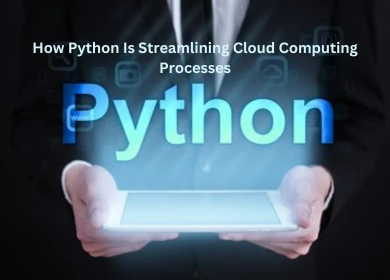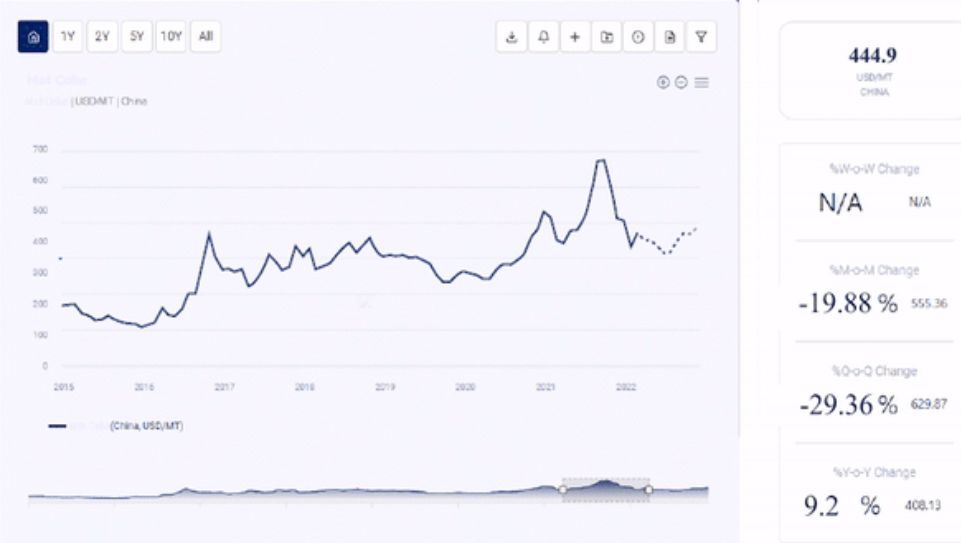
Introduction
The world of cloud computing is changing rapidly, and one of the key drivers of this change is the programming language Python. As businesses turn to cloud computing to streamline their operations, Python’s importance increases. Python has become increasingly popular among coders and developers thanks to its versatility and ease of use. This open source language is especially well-suited for cloud computing, allowing developers to create user-friendly, cost-effective, and efficient applications that process large amounts of data quickly. Python’s scalability, speed, and efficiency benefits make it ideal for both small and large tasks, from automating deployment processes to creating comprehensive machine learning models. New technologies, such as Google’s Kubernetes platform, have made it easier for businesses to manage their clouds more effectively. Python also provides easy access to common libraries used in data science workflows, simplifying the development process and enabling developers with limited knowledge about data science algorithms or models to build complex models quickly.Python And Cloud Computing Key Benefits
“The future of cloud computing is being propelled by Python. As a versatile language for developing applications, Python can enhance cloud infrastructure in multiple ways. By integrating Python and cloud computing solutions, businesses can benefit from increased flexibility in the development process. With the help of this language, developers can transform data into meaningful insights with ease. Additionally, they can leverage the security, reliability, and scalability of Python solutions in the cloud. At Kelly Technologies, we provide comprehensive Python Training in Hyderabad to help students acquire the right skillset. Python is an easy-to-learn, open-source language that is ideal for cloud development. It supports scalability and makes it easy to build applications on cloud platforms such as AWS or Azure. The language also includes a wide range of libraries and frameworks for web development and data analysis, making it suitable for machine learning, artificial intelligence, and big data applications. Furthermore, Python code can be integrated with many other cloud services such as analytics or AI solutions, providing developers with access to more tools when needed. Overall, using Python in a cloud computing environment offers various benefits, including rapid development at low cost with cross-platform support. This makes it easier to develop on multiple platforms simultaneously without any additional effort or expense required. Businesses that leverage this technology will find that their projects become faster-to-market and more reliable due to its robustness and ease-of-use, leading them down a path towards success!Leveraging Python For Smarter Cloud Solutions
Python has quickly become a popular programming language for cloud computing. Its flexibility, scalability and ease of use are just some of the reasons why it has been widely adopted. Python allows businesses to develop and deploy cloud solutions to handle workloads of any size. Python’s libraries allow developers to easily integrate their applications with databases and analytics engines – this makes coding activities faster and easier than other languages. Furthermore, Python’s imperative programming capabilities enable developers to create complex logic functions with simple, concise syntax. Cloud computing is a secure environment that can transform data management approaches as well as working practices across all sectors by providing an affordable alternative to traditional IT infrastructures. Python’s easy-to-learn syntax facilitates team collaboration and orchestration, allowing multiple developers to work together on projects without requiring extensive training or experience in a particular language. Finally, there exist numerous applications and frameworks that make use of Python’s powerful features, such as Pi Cloud and AWS Logging. Accessing Python’s full Cloud Computing environment is the first step towards using it more efficiently.How Python Is Streamlining Cloud Computing Processes
Python is revolutionizing the way cloud computing processes are done. Its user-friendly syntax and powerful libraries make it easy to streamline tasks and automate processes. Python has become one of the most popular choices for developers working with cloud infrastructure, driving the future of cloud computing and providing better efficiency, speed, and security for businesses. Python simplifies coding by quickly processing data with minimal code written. Developers can create applications faster because they don’t have to manually code every line of code like in other languages. There are also many libraries available for specific tasks such as machine learning or artificial intelligence due to its open-source nature. Python’s ability to quickly process data makes it ideal for automating cloud computing processes without having to write large amounts of code each time. Pre-configured templates make it easier for developers to deploy applications quickly and easily while saving time and money. This makes it ideal for creating resilient web applications with minimal effort while still maintaining high levels of security through using AWS services such as Identity Access Management. Amazon Web Services (AWS) is an example of a business utilizing Python in their cloud infrastructure. AWS Cloud Computing provides an expansive array of services ranging from pre-configured templates and server-less computing environments to fully managed services like Lambda. AWS also offers a wide range of tools and resources related directly towards DevOps practices allowing teams to employ best methods securely across the company’s entire technological stack.Conclusion
In conclusion, This article in T Talkus should’ve given you a clear idea about the subject. Python has become the go-to choice amongst the majority of software engineers looking to take advantage of the vast number of benefits offered through utilization of Cloud Computing Infrastructure today. It saves both time and money while keeping the user experience safe and secure at the same time.








